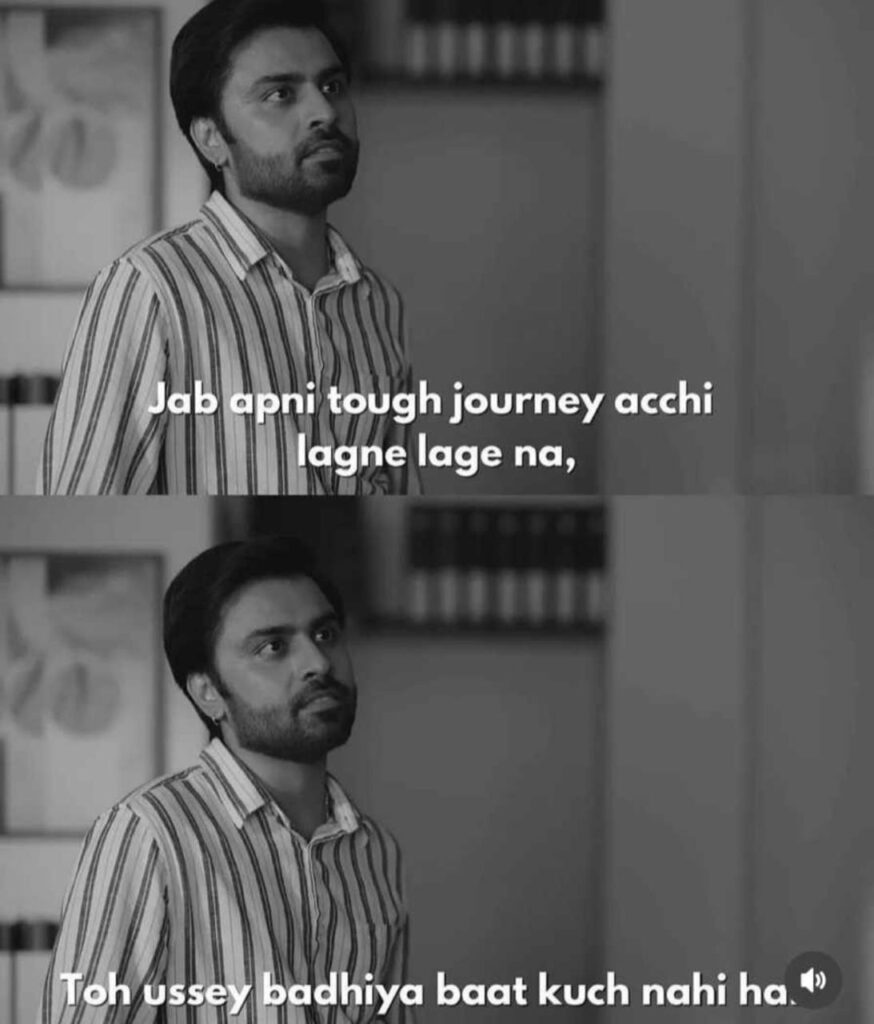There was a very famous doctor who was having his farewell party. During the party, a dancer was invited, and upon seeing the dancer, the doctor became emotional. When asked by his friends, the doctor said, “On paper, I may be very successful with cars, houses, a wife, children, a good job, and respect. But 30 years ago, I couldn’t tell my parents that I didn’t want to become a doctor; I wanted to become a dancer. Now, I constantly think that if I had spoken up back then, I might have been slightly less successful in the eyes of the world materialistically, but I would have been very, very successful in my own eyes.”

I turned 29 this May. That means 29 years of my life have gone by, and by society’s definition of success, I haven’t really “made it” yet.
I’m not running a thriving business, I don’t have a huge social media following, I’m not married, and I don’t have kids.
In fact, I left a stable job and moved back in with my parents. So technically, I’m unemployed at the moment.
Yes, I’m still pursuing my personal interests, and I’ve gained the freedom to explore them at my own pace. I also get to spend quality time with myself and my family—something I deeply value. But does any of that count in the eyes of society? Apparently not.
and we’re conditioned to think the same way. We absorb opinions from all directions—family, media, peers—and over time, we start repeating them to ourselves until they sink deep into our subconscious. Years later, when we finally begin to question things and become more self-aware, it takes even more time to untangle those layers and clear our minds.
We don’t even realize that the life we’re chasing might not be what we truly want. We end up running a race that feels empty, with no time for ourselves or our loved ones. And when it comes to stepping out of that cycle, taking a stand, or following our true calling—we freeze. Why? Because we were never taught how.
From childhood through school, college, and into our jobs, we’ve been trained to follow instructions—to obey, not to question. So when we finally get a chance to think for ourselves, we’re lost. It takes a long time to unlearn that obedience and find our own direction.
And if we stumble along the way—if we fail—society is quick to jump in with a smug, “See? Told you. Now get back in line.”
I’m currently going through this phase myself—and I know I’m not alone. I’ve spoken to many people who feel stuck in this never-ending race. They feel helpless but continue running because they simply don’t know how to step out of it. Eventually, the weight of it all becomes too much, and they give up trying altogether.
And here’s what’s even more heartbreaking—when one or two people actually try to break free and choose a different path, instead of being supported, they’re met with resistance. The same people who once felt stuck project their fears onto those who dare to take a different route. Rather than lifting them up, they try to pull them back down. It’s a strange, strange world.
But here’s the thing—we need to start by redefining success and failure for ourselves.
What is success, really? Is it the same for everyone? A car, a house, a 1 Crore salary, a marriage, and kids? Or is it something deeply personal that only you can define?
And what about failure? Is it really failure if you’re living in alignment with what makes you feel whole?
For me, success means having the freedom to spend my time as I want—doing things that matter to me, at my own pace. And by that definition, I feel more successful today than someone with billions in their bank account, because for me, money has never been the ultimate goal.
Maybe society won’t understand that—and that’s okay. I’m not here to meet their definition of success. I’m here to live mine.
For me, true success lies in my spiritual journey—in how deeply I connect with and harmonize my inner world. That’s where my heart is, and that’s where I’ve given my best. Yes, I’ve encountered failures, even major ones, but I haven’t given up. When I look back, I don’t carry much regret—because I’ve dared to try, to explore, to experience. And to me, that itself is a form of success.
But I’ll be honest—there are moments when I pick up my phone, scroll through social media, and see people celebrating milestones, sharing achievements, and living what looks like “perfect” lives. In those moments, even after all the inner work I’ve done, I find myself slipping into comparison. I begin to doubt myself, to question my path.
So I want to tell you this:
Don’t let someone else’s definition of success shrink your self-worth.
Define what success and failure mean to you. Blindfold yourself to the noise, and walk your path with focus and intention. Because once you’re aligned with your own truth, your work becomes joyful. It brings peace. And that’s what truly matters.
And if you’re still unsure of your path, that’s okay too. Keep seeking, stay open, and trust the process. Keep groping in the dark until something clicks. You’re not lost—you’re just in the middle of finding your way.
As Osho once said:
“Each person comes into this world with a specific destiny—he has something to fulfil, some message to deliver, some work to complete. You are not here accidentally; you are here meaningfully. The whole intends to do something through you.”
Or, in the wise words of Jeetu Bhaiya, a character I really admire:
When you begin to enjoy your journey, there’s nothing better than that

Note:
Chapter 3, verse 35
श्रेयान्स्वधर्मो विगुण: परधर्मात्स्वनुष्ठितात् |
स्वधर्मे निधनं श्रेय: परधर्मो भयावह: || 35||
It is far better to perform one’s natural prescribed duty, though tinged with faults, than to perform another’s prescribed duty, though perfectly. In fact, it is preferable to die in the discharge of one’s duty, than to follow the path of another, which is fraught with danger.